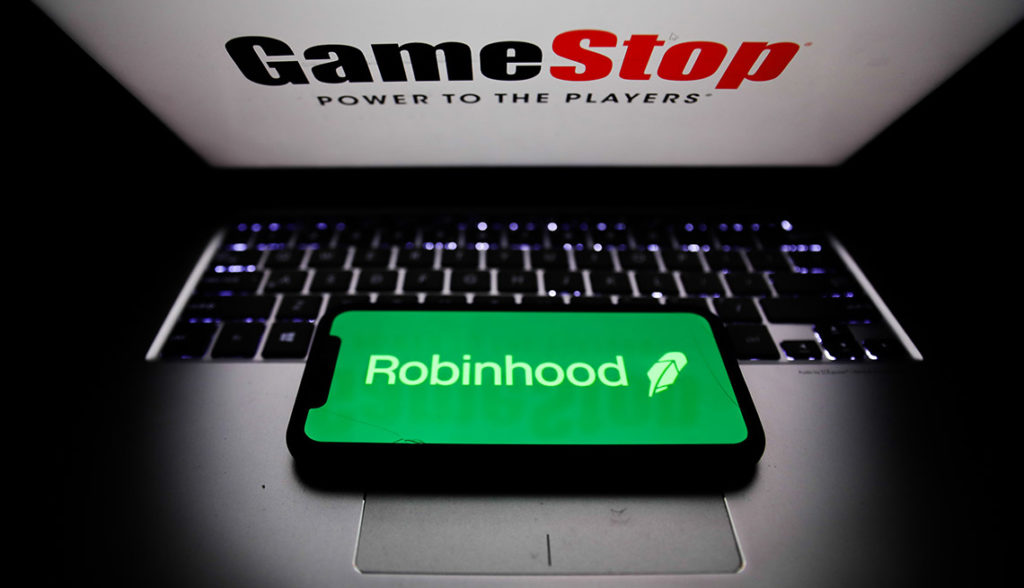Lessons for retirement savers
For the average retirement investor, the GameStop storm has little impact. Most people can’t buy into the hedge funds that got slammed by betting against GameStop stock. You generally need a net worth of $1 million (excluding your home), or an annual income over $200,000 (or $300,000 jointly with a spouse) for the previous two years, just to qualify to invest in a hedge fund.
Some pension funds that invest heavily in hedge funds could have gotten dinged. But it would be highly unusual for a pension fund to have a large portion of its assets in any one hedge fund. Pension funds are required to be diversified and minimize the risk of large losses.
And individual retirement investors probably read about it on the news, not in their 401(k) balances. “A retirement saver that participates in a 401(k) shouldn’t have anything to worry about because the available fund options aren’t likely exposed to a short-selling strategy like GameStop,” Mark Bass, a financial planner in Lubbock, Texas, said in an e-mail. The SEC restricts short-selling in most mutual funds.
The typical retirement investor buys mutual funds, and most mutual funds don’t even own the stocks that were part of the recent wild swings — or don’t own enough to make a difference. Forty-five percent of all 401(k) assets are invested in mutual funds, and another 31 percent are in collective investment trusts, pooled investments similar to mutual funds, according to Morningstar. When you own a fund with hundreds of different stocks, all in different industries, the gyrations of one or two small holdings doesn’t make much of a difference. For example, Vanguard Total Stock Market Index fund, the largest U.S. stock mutual fund, owns 2.1 percent of all GameStop shares, according to Morningstar. That rounds to less than 0.01 percent of the $1 trillion fund’s total assets.
“If someone has a self-directed IRA that allows someone to gamble — excuse me, invest — in GameStop, then that’s a different matter,” says Bass.
But if you have a typical 401(k) portfolio composed of mutual funds, don’t worry, Harold Evensky, a financial planner in Coral Gables, Florida, said in an e-mail. “Just enjoy the entertainment watching the crazies on both ends of the GameStop transactions going nuts and getting well-deserved ulcers,” he says.
And retirement investors are in it for the long haul, which means, generally, you’re not hoping to invest in a stock on Monday morning and double your money by lunch on Tuesday. After all, a stock that has the chance of doubling overnight also has the chance of being slashed in half overnight. Thanks to the remorseless mathematics of losses, a person in or near retirement is less likely to be able to recoup a big loss than a younger investor. After all, if you take a 50 percent loss, you need a 100 percent gain just to get even. And as of Feb. 3, GameStop stock had tumbled to $92.41, an 81 percent loss from the Jan. 28 high.
What’s the biggest takeaway for retirement investors? Stay diversified to reduce your risk of catastrophic losses, including diversification outside of the market. Take time to think about your goals and how you’ll achieve them. “If you have a complete plan,” says Pete Cymbalak, investment advisor with Empowered Financial Management in Middleton, Wisconsin, “stick to that plan. If you don’t get distracted by the shiny objects and don’t get fearful from the black clouds, you’re going to be OK.”
John Waggoner covers all things financial for AARP, from budgeting and taxes to retirement planning and Social Security. Previously he was a reporter for Kiplinger’s Personal Finance and USA Today and has written books on investing and the 1998 financial crisis. Waggoner’s USA Today investing column ran in dozens of newspapers for 25 years.

